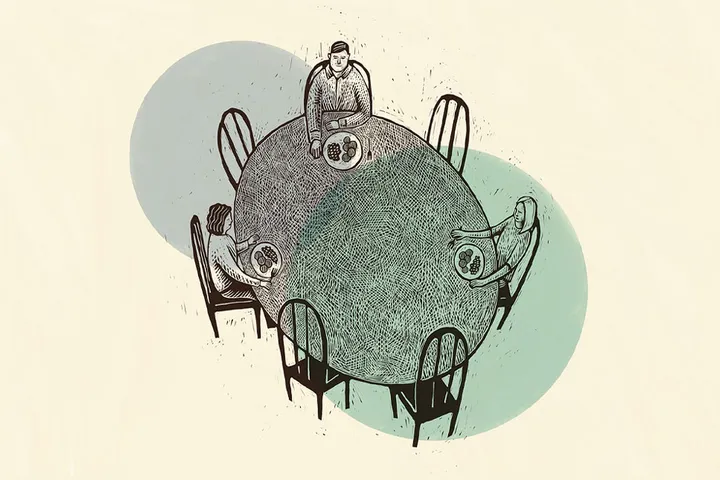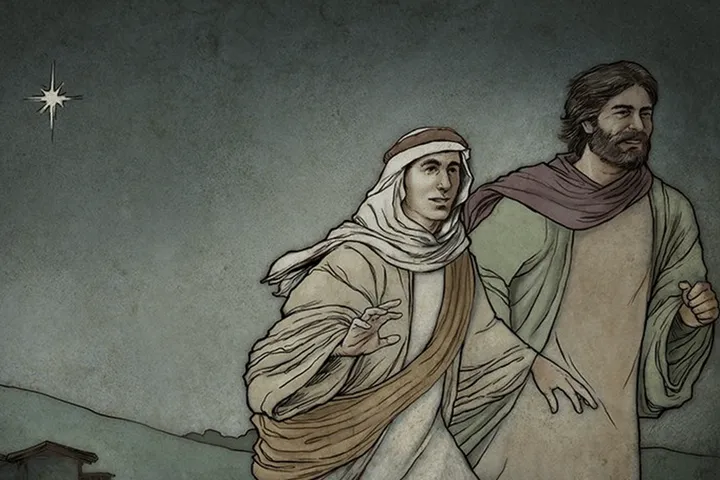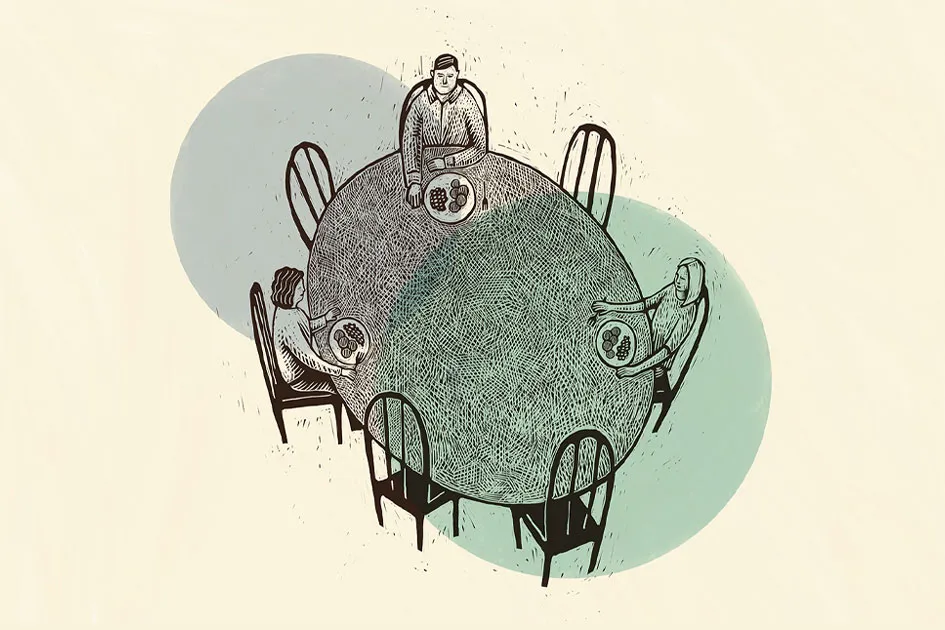Matthew Murray is a medical traveler, a healthcare professional who provides short-term staffing support to hospitals around the country. While he fills a crucial role for each facility he serves, his heart is set on people’s spiritual health. Lucy, a purebred black poodle, is Murray’s accomplice. The dog is tall, composed, and friendly, and her soft coat is cut in the traditional style—“with the puffs and all that stuff,” as Murray puts it. In no time, Lucy captures the interest of anyone coming down the street. And a compliment or question initiates conversation between two strangers.
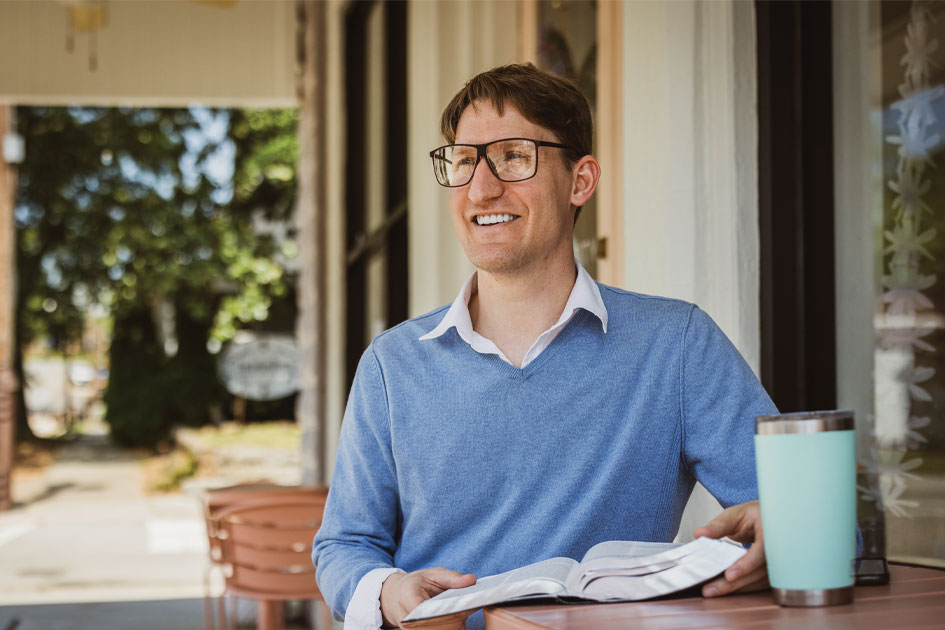
Murray had Lucy trained as a certified therapy dog so she could be a missionary of sorts. But the poodle’s been therapeutic for Murray as well and has “opened [him] up to a whole group of people [he] never would’ve been around.” As a result, he’s met folks from all walks of life and worldviews. He looks at each person with eyes of compassion, recognizing, as he says, “the sin in myself and how quickly I might be judging someone else.”
For years Murray dug deeply into the many distinctives of evangelical Christianity, exploring each emphasis in an effort to understand conflicts between believers. Though it gave him an appreciation for others, he ached for something more solid. “I would tell people, ‘I need some kind of core principle, a core value.’” And that’s precisely what he located in Dr. Stanley’s book 30 Life Principles. From that and other works, Murray felt a kinship with Dr. Stanley, who, as a young man, also sought spiritual discernment.
While Lucy helps Murray connect with strangers, he also looks for ways to minister to colleagues, such as invitations to use his building’s indoor basketball or kitchen facilities. In addition, cutting down on carry-out meals lets him take friends to dinner more often. What’s more, on hearing his exhausted coworkers hadn’t had vacation time for two years because of the pandemic, Murray became concerned. So he extended his contract, enabling his supervisor to work in a break for everyone.
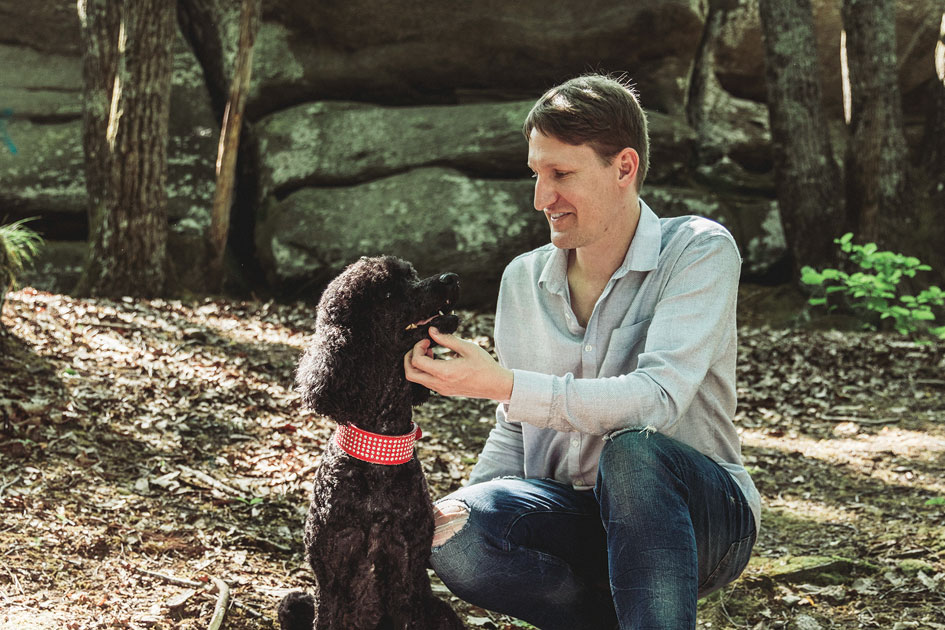
When new to Connecticut, he found a park in a Jewish community and enjoyed walking Lucy there. Negative experiences with outsiders left some residents suspicious of the newcomers, Murray says, “but [when they] saw how my dog looks, they were probably like, Well, he can’t be that harmful—look at that dog!”
Soon a college student started joining him and Lucy on their walks. Though of the conservative Jewish faith, the young man liked listening to Murray tell him about Christ in relation to the Old and New Testament. “It was 27 degrees and snowing,” Murray remembers. “And there I was—witnessing for an hour and a half outside.”
For the dog, people stop. And for the sake of Christ, Murray listens a little longer, prayerful about what he can share with them. It’s important to look past externals and “actually see there’s an identity there,” he says, “someone that struggles. And when you begin to share your struggle, you can have a real conversation.”

